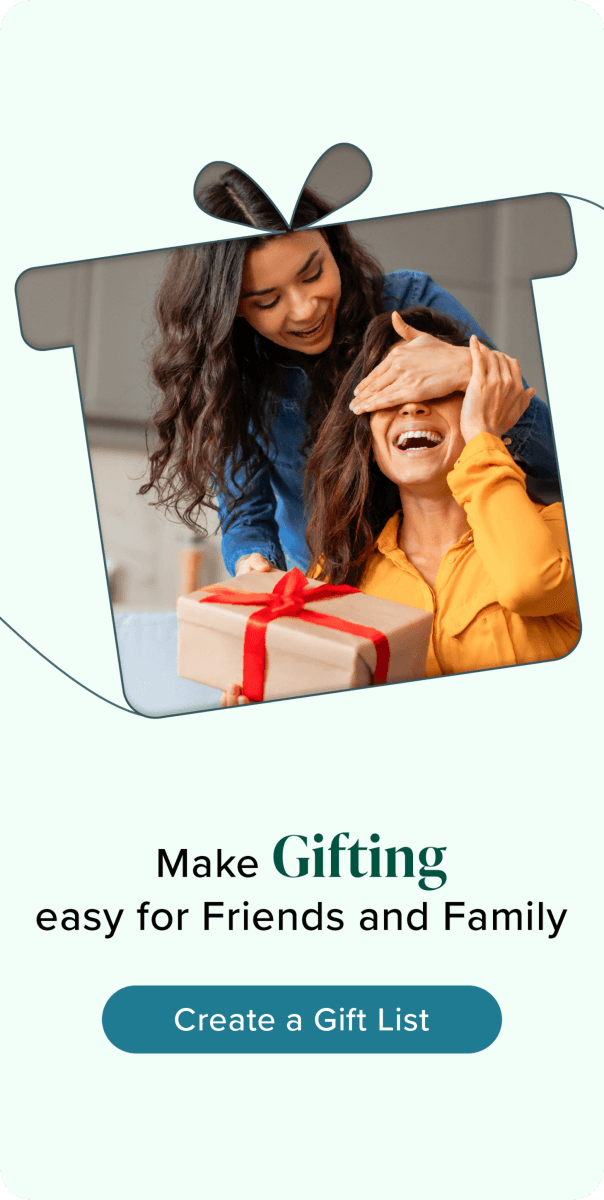The “experiences over things” philosophy has dominated gift-giving conversations for years, positioning material gifts as inferior to experiential ones. While this mindset contains valuable insights about happiness and memory-making, it oversimplifies the complex relationship between material possessions and human well-being. A more nuanced approach to gift lists reveals that the most meaningful gifts often transcend the experience-versus-thing dichotomy entirely.
Rethinking the Experience-Thing Binary
The popular narrative suggests that experiences create lasting happiness while material possessions provide only temporary satisfaction. However, this framework creates an artificial division that doesn’t reflect how people actually interact with gifts in their daily lives. The most cherished gifts often blur the boundaries between experiences and things, serving as catalysts for ongoing experiences, tools for personal growth, or tangible reminders of meaningful relationships.
Modern gift list platforms like MyRegistry.com recognize this complexity by allowing users to include diverse types of gifts that serve multiple purposes. Rather than forcing choices between experiences and objects, thoughtful gift lists can include items that facilitate experiences, support personal development, and create lasting value in various forms.
The Limitations of Experience-Only Gifting
While experiential gifts offer unique benefits, exclusively focusing on experiences presents several practical challenges:
Accessibility Barriers: Not everyone can participate in all types of experiences due to physical limitations, scheduling constraints, or location restrictions.
Preference Diversity: Individual personalities vary significantly in how they derive satisfaction from experiences versus tangible items.
Timing Challenges: Experiential gifts often require specific timing or conditions that may not align with recipients’ lives.
Memory Preservation: Some people better retain positive feelings through physical reminders rather than purely experiential memories.
Practical Needs: Focusing solely on experiences can overlook genuine practical needs that significantly improve quality of life.
The Hidden Value of Thoughtful Material Gifts
Material gifts, when chosen thoughtfully, provide unique benefits that experiences cannot replicate:
Daily Utility: Well-chosen items integrate into daily routines, providing ongoing value and positive associations.
Skill Development: Certain material gifts enable new capabilities or support existing interests in ways that single experiences cannot.
Relationship Reminders: Physical gifts serve as tangible reminders of relationships and thoughtful gestures.
Comfort and Security: Some material gifts provide emotional comfort or practical security that enhances overall well-being.
Creative Expression: Material gifts can serve as tools for ongoing creative expression and personal development.
The Psychology of Meaningful Possession
Research reveals that the relationship between material possessions and happiness is far more complex than the experience-versus-thing narrative suggests. Meaningful possessions that align with personal identity, support important activities, or facilitate relationships can provide lasting satisfaction comparable to or exceeding many experiential gifts.
The key lies not in avoiding material gifts but in understanding which types of possessions create genuine value. Items that support personal growth, facilitate social connections, or enhance daily life often provide sustained satisfaction that transcends their material nature.
Introducing the Facilitative Gift Concept
The most powerful gifts often serve as facilitators rather than ends in themselves. These hybrid gifts combine the best aspects of both experiences and things by providing tangible items that enable ongoing experiences, learning, or personal development.
Facilitative gifts bridge the artificial experience-thing divide by:
Enabling Experiences: Providing tools or equipment that make new experiences possible or enhance existing ones.
Supporting Growth: Offering items that facilitate skill development, learning, or personal improvement over time.
Creating Connections: Giving gifts that bring people together or support shared activities and interests.
Enhancing Daily Life: Improving routine experiences through thoughtful, functional items that add joy or efficiency.
MyRegistry.com: Supporting Holistic Gift Approaches
MyRegistry.com‘s universal registry platform perfectly supports the facilitative gift concept by allowing users to create comprehensive wish lists that include diverse types of gifts. Rather than limiting options to traditional categories, the platform enables gift list creators to include:
Experience Enablers: Items that make specific experiences possible or more enjoyable.
Skill Builders: Tools and resources that support learning and personal development.
Relationship Facilitators: Gifts that create opportunities for connection and shared experiences.
Daily Enhancers: Practical items that improve routine experiences and overall quality of life.
Creative Catalysts: Materials and tools that enable ongoing creative expression and exploration.
The Social Dimension of Material Gifts
Material gifts often carry social significance that purely experiential gifts cannot replicate. Physical items can:
Demonstrate Thoughtfulness: Carefully chosen items show deep understanding of the recipient’s needs, preferences, and lifestyle.
Create Ongoing Connections: Unlike experiences that end, material gifts can prompt ongoing conversations and shared memories.
Support Identity Expression: Certain possessions help people express their values, interests, and personality to others.
Build Traditions: Some material gifts become part of family or personal traditions, creating lasting cultural significance.
Cultural and Generational Perspectives
The experience-versus-thing preference varies significantly across cultures and generations:
Cultural Values: Different cultures place varying emphasis on material possessions versus experiential gifts based on traditional values and social norms.
Generational Differences: Various age groups may prefer different types of gifts based on their life stage, economic circumstances, and cultural experiences.
Individual Personalities: Personal preferences for tangible versus experiential gifts often reflect deeper personality traits and individual values.
Life Circumstances: Current life situations significantly influence whether experiences or material gifts provide greater value.
The Sustainability Perspective
Environmental consciousness has contributed to the experience-over-things movement, but this perspective can be oversimplified:
Durable Goods: High-quality, long-lasting material gifts can be more environmentally friendly than frequent experiential purchases.
Shared Resources: Some material gifts enable resource sharing and community building that reduces overall consumption.
Skill Development: Gifts that teach new skills or support self-sufficiency can reduce long-term environmental impact.
Local Experiences: Not all experiences are environmentally neutral—some involve significant travel or resource consumption.
The Economic Reality of Gift-Giving
Economic factors significantly influence the experience-versus-thing debate:
Budget Flexibility: Material gifts often offer more flexible pricing options, allowing gift-givers to participate regardless of budget constraints.
Value Perception: Different people perceive value differently—some prefer tangible items they can use repeatedly, while others value unique experiences.
Long-term Investment: Some material gifts provide ongoing value that exceeds their initial cost, while experiences offer one-time enjoyment.
Accessibility: Material gifts can be more accessible to gift-givers who may not have the means to fund expensive experiences.
Creating Balanced Gift Lists
The most effective gift lists move beyond the experience-versus-thing binary to include thoughtfully curated items that serve multiple purposes:
Diverse Categories: Include various types of gifts that serve different functions and appeal to different gift-givers.
Clear Purpose: Explain why specific items matter and how they will be used or enjoyed.
Range of Engagement: Include items that provide both immediate satisfaction and long-term value.
Personal Relevance: Focus on gifts that align with genuine interests, needs, and lifestyle preferences.
Relationship Building: Consider how different gifts might facilitate connections with various people in your life.
The Memory Integration Factor
Contrary to popular belief, material gifts can be deeply integrated with memory formation:
Memory Anchors: Physical items can serve as powerful memory anchors that preserve and recall important experiences.
Ongoing Reminders: Unlike experiences that fade, material gifts can trigger positive memories repeatedly over time.
Story Creation: Some material gifts become part of ongoing personal narratives and family stories.
Sensory Connections: Physical gifts engage multiple senses, creating richer memory associations than purely experiential gifts.
Quality Over Quantity in All Forms
Whether choosing experiences or material gifts, quality matters more than category:
Meaningful Experiences: Not all experiences are equally valuable—some create lasting impact while others fade quickly.
Thoughtful Items: Material gifts chosen with care and consideration often provide more satisfaction than generic experiential gifts.
Personal Relevance: Both experiences and things derive their value from how well they align with individual preferences and needs.
Lasting Impact: The best gifts, regardless of form, create positive impact that extends beyond their immediate consumption or use.
The Future of Thoughtful Gift-Giving
As our understanding of happiness and satisfaction evolves, gift-giving approaches will likely become more sophisticated:
Personalization Technology: Advanced algorithms may help identify the optimal mix of experiential and material gifts for each individual.
Hybrid Offerings: New types of gifts that combine experiential and material elements will become more common.
Sustainable Options: Environmental consciousness will continue to influence gift choices across all categories.
Community Integration: Gifts that support community building and social connection will gain importance regardless of their form.
Practical Strategies for Gift List Creation
When creating gift lists that transcend the experience-thing divide:
Consider Your Lifestyle: Think about how different types of gifts would integrate into your daily life and long-term goals.
Value Diversity: Include items that serve different purposes and appeal to various gift-givers and occasions.
Explain Your Choices: Help gift-givers understand why specific items matter and how they will be appreciated.
Plan for Longevity: Consider which gifts will provide ongoing value and satisfaction over time.
Embrace Flexibility: Allow room for both planned preferences and spontaneous discoveries.
Conclusion: Embracing Gift-Giving Complexity
The “experiences over things” philosophy, while well-intentioned, oversimplifies the rich complexity of human relationships with both material possessions and experiential gifts. The most meaningful gifts often transcend these categories entirely, serving as facilitators of ongoing experiences, supporters of personal growth, and tangible expressions of care and understanding.
Platforms like MyRegistry.com enable this more nuanced approach by supporting diverse gift types that serve multiple purposes. Rather than forcing artificial choices between experiences and things, thoughtful gift lists can include carefully curated items that provide lasting value in various forms.
The future of gift-giving lies not in choosing between experiences and material gifts, but in understanding how different types of gifts can work together to create meaning, facilitate connections, and support the recipient’s journey toward greater happiness and fulfillment. By embracing this complexity, we can create more thoughtful, inclusive, and ultimately satisfying gift-giving experiences for everyone involved.


